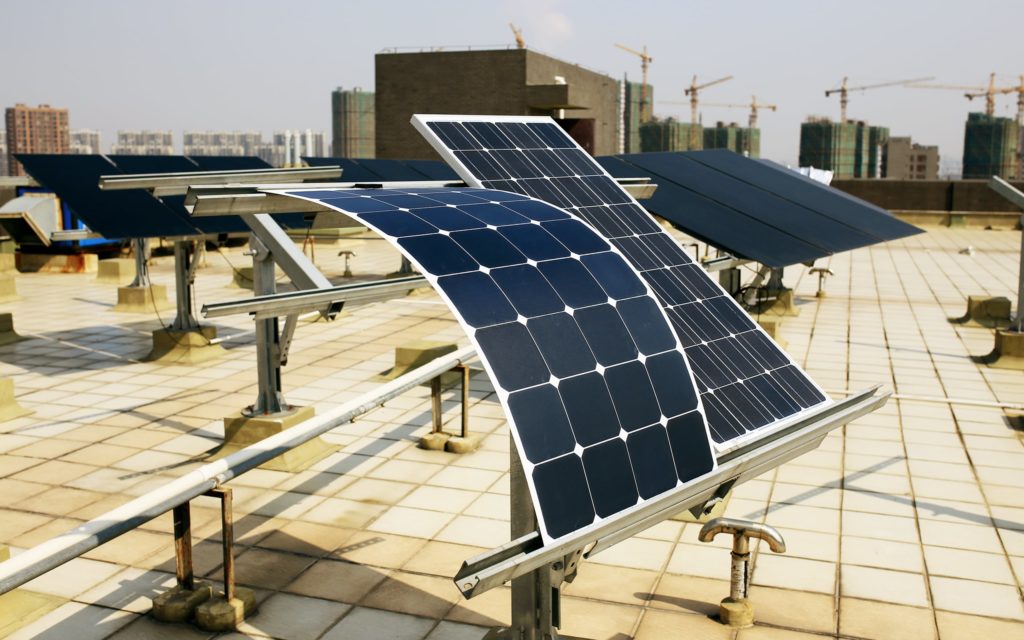Flexible solar panels, also known as flexible solar modules or thin-film solar panels, offer a unique advantage over traditional rigid solar panels due to their lightweight and adaptable nature. They can be integrated into a variety of applications, including curved surfaces, portable devices, and unconventional installation areas.
Amorphous Silicon (a-Si) Thin-Film Panels:
These panels use non-crystalline silicon and are known for their flexibility and lightweight nature.
They have lower efficiency compared to crystalline silicon panels but perform better in low-light conditions.
Amorphous silicon panels are often used in small-scale applications like solar chargers, portable devices, and solar-powered backpacks.
Cadmium Telluride (CdTe) Thin-Film Panels:
CdTe panels are made by depositing a thin layer of cadmium telluride on a substrate.
They offer better efficiency than amorphous silicon panels and are cost-effective to produce.
CdTe panels are commonly used in large-scale installations and building-integrated photovoltaics (BIPV) due to their scalability and lightweight nature.
Copper Indium Gallium Selenide (CIGS) Thin-Film Panels:
CIGS panels consist of a thin layer of copper, indium, gallium, and selenium compounds on a flexible substrate.
They have achieved higher efficiency levels compared to other thin-film technologies.
CIGS panels are used in various applications, including residential installations, BIPV, and portable solar chargers.
Organic Photovoltaic (OPV) Panels:
OPV panels use organic materials that can be printed or coated on flexible substrates.
They are still in the early stages of development and offer the potential for lightweight, low-cost, and customizable solar solutions.
OPV panels are used in experimental applications, such as integrating solar cells into fabrics and windows.
Dye-Sensitized Solar Cells (DSSC):
DSSC technology uses a dye to absorb sunlight and generate electricity.
They are flexible and can be integrated into various surfaces, including curved and transparent ones.
DSSC panels are often used in niche applications like solar-powered gadgets and architectural designs.
Multi-Junction Flexible Panels:
These panels combine multiple layers of different solar materials to capture a wider range of the solar spectrum, enhancing efficiency.They are used in specialized applications that require high efficiency, such as aerospace and satellite systems.
Flexible solar panels are categorized based on the materials they use, their efficiency, applications, and technological advancements. The choice of flexible solar panel type depends on the specific requirements of the application, such as available space, desired efficiency, budget, and the intended use of the generated electricity.


